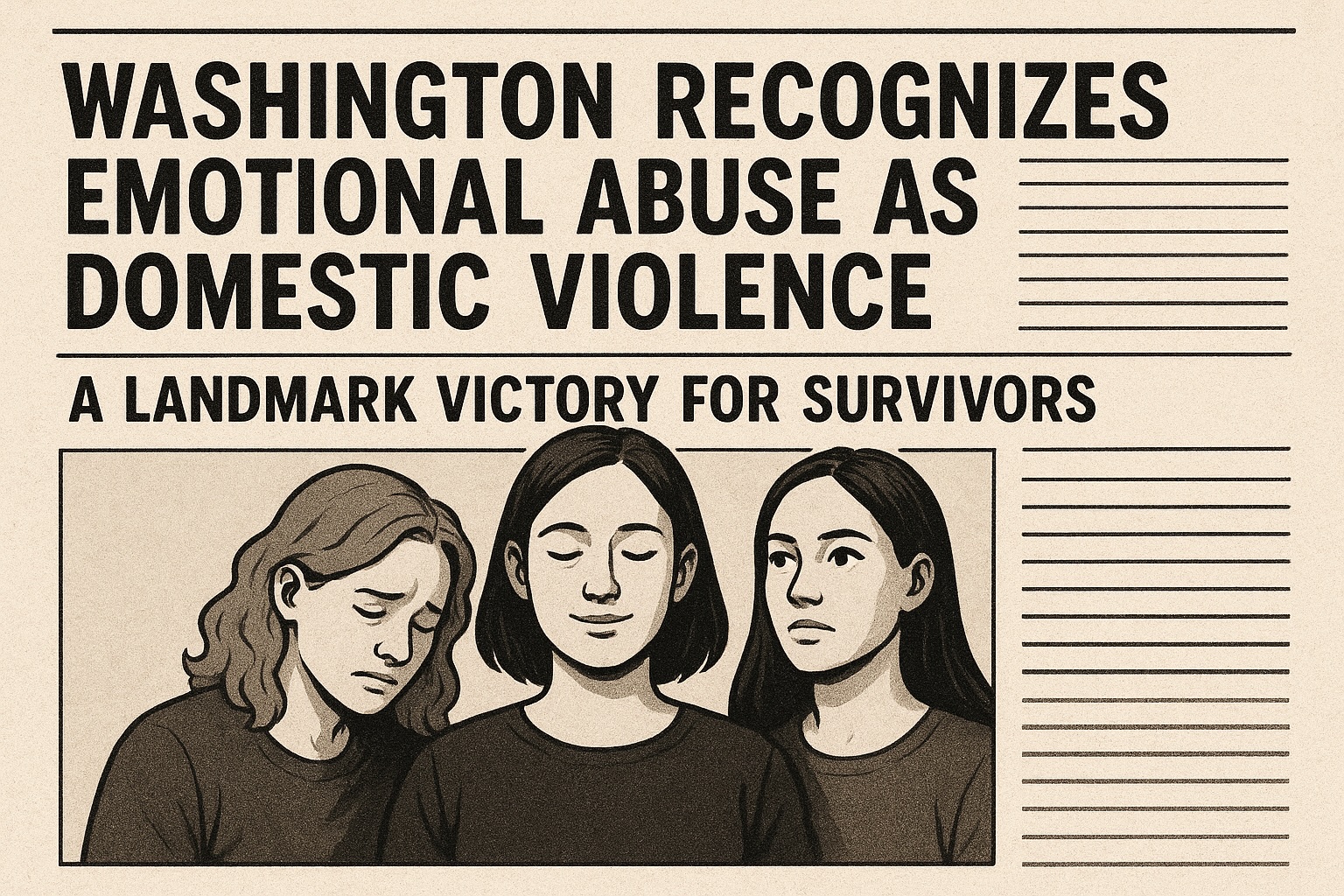📰 Washington Recognizes Emotional Abuse as Domestic Violence: A Landmark Victory for Survivors
Washington passed a new law recognizing emotional abuse in domestic violence cases, expanding survivor protections in courts and custody hearings.

Domestic violence has long been defined through the lens of physical harm, but advocates and survivors know that abuse is far more complex. Emotional and psychological abuse — including gaslighting, intimidation, manipulation, and isolation — can leave wounds that are just as deep, even if they are invisible.
In a landmark move, Washington has passed legislation formally recognizing emotional abuse as a form of domestic violence. For the first time, survivors whose abuse is primarily psychological will be able to access protective orders, custody protections, and vital services that were previously unavailable.
This law represents a paradigm shift: abuse without bruises now carries the same weight under Washington law.
Why Emotional Abuse Matters
The Invisible Wounds of Abuse
Survivors of emotional abuse often experience long-term trauma, including anxiety, depression, and PTSD.
Abusers use tactics like gaslighting to make victims doubt their own reality, financial control to enforce dependence, and social isolation to cut them off from support networks.
Children raised in emotionally abusive homes suffer lasting developmental and mental health challenges, even if they never witness physical violence.
A Gateway to Physical Violence
Research shows that emotional abuse is often the precursor to physical violence. By addressing it early, this law may prevent escalation and save lives.
What the New Law Provides
Protective Orders
Courts can now issue protection orders in cases involving emotional abuse — a critical safeguard for survivors who may be at risk of escalation.Custody and Divorce Protections
Judges are now required to consider emotional abuse when determining custody, visitation, and divorce settlements, ensuring child safety and survivor well-being.Service Expansion
Survivors of emotional abuse gain access to:Counseling and trauma recovery services.
Legal aid for custody and divorce cases.
Support groups and community resources.
Community Response
Advocates Applaud the Change
Domestic violence advocates across Washington have hailed the legislation as life-changing for “invisible survivors.” By validating emotional abuse legally, the state acknowledges that trauma is not only physical.
Training for Judges and Police
Judicial education programs are rolling out to help judges understand emotional abuse dynamics.
Law enforcement officers are receiving new guidelines for recognizing signs of psychological abuse during calls.
Survivor Voices
Survivors have spoken out about finally being heard:
“For years, I was told it wasn’t abuse because he never hit me. This law proves my experience was real and dangerous.”
“Now I can fight for custody knowing the court understands the harm emotional abuse does to children.”
Broader Implications for the U.S.
Washington’s recognition of emotional abuse could become a national model. Other states are already considering similar legislation, and domestic violence advocates hope this signals a cultural shift toward holistic survivor protection.
By addressing non-physical abuse head-on, Washington is helping dismantle the myth that domestic violence only counts if there are visible bruises.
Conclusion
With this new law, Washington has made a powerful statement: abuse without scars is still abuse. By extending protections to survivors of emotional and psychological harm, the state is ensuring that every form of domestic violence is taken seriously in the eyes of the law.
This legislation validates survivors, protects children, and strengthens the state’s domestic violence response — setting a precedent for the rest of the country.
FAQs
1. What does Washington’s new law cover?
It legally recognizes emotional abuse as a form of domestic violence.
2. Why is this significant?
It validates survivors’ experiences and expands legal protections.
3. Can protective orders be issued for emotional abuse?
Yes, courts can now grant protective orders even when abuse is primarily psychological.
4. How will courts adapt?
Judges and police are being trained to recognize emotional abuse in legal and enforcement settings.
5. What’s the benefit for survivors?
Expanded custody protections, access to survivor services, and acknowledgment of emotional trauma in the justice system.
